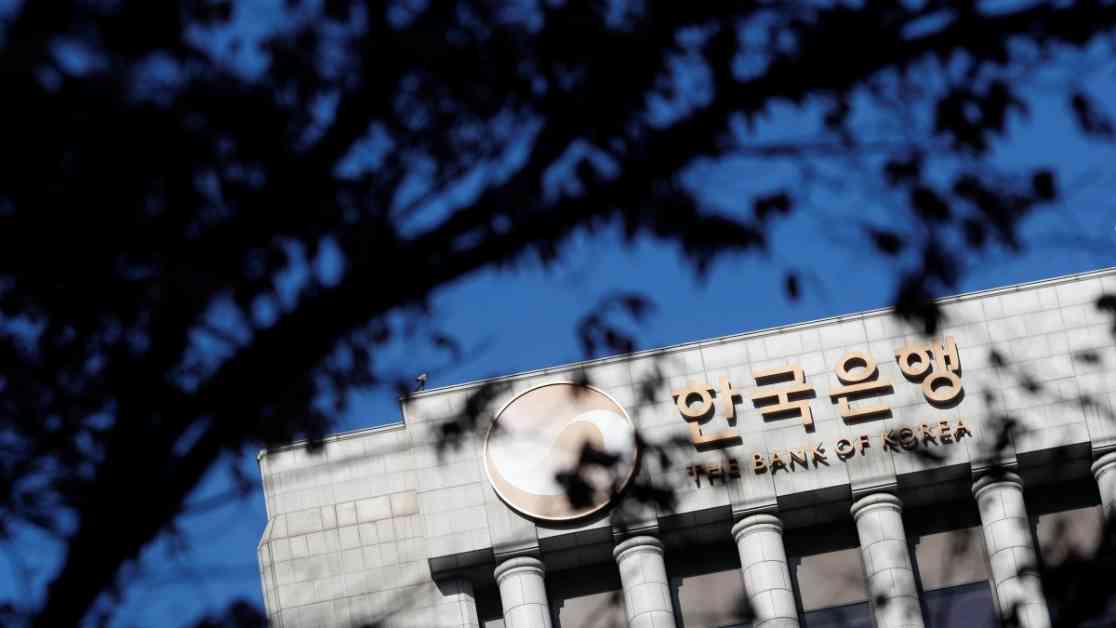South Korea’s central bank surprised many by cutting a key policy rate on Thursday and hinting at more cuts to come. The Bank of Korea (BOK) reduced benchmark interest rates by 25 basis points to 3.00%, a move that only a few economists predicted. The decision was made in response to weakening economic growth and concerns about potential trade risks from a second term of former President Trump.
Governor Rhee Chang-yong mentioned that three board members were open to further easing in the coming months due to increasing export competition with major countries and uncertainties surrounding the trade environment after Trump’s re-election. This rate cut marked the first time since early 2009 that the BOK has cut rates consecutively, aiming to boost growth as inflation pressures remain manageable.
South Korea’s economy faces risks of higher tariffs, especially with its largest trading partner China potentially being subjected to significant tariffs. The country recorded a trade surplus of $44.4 billion with the U.S. in 2023, emphasizing the need to protect key growth sectors like the local chip industry. President Yoon Suk Yeol’s administration has announced plans to support local chipmakers in anticipation of unfavorable policies from the upcoming Trump administration.
Analysts predict more rate cuts in the first quarter of the year as the BOK focuses on supporting growth amid economic challenges. The South Korean economy narrowly avoided a technical recession in the third quarter, with minimal growth due to a slowdown in private consumption and stagnant exports. To counteract declining consumer spending and economic slowdown, the government is considering implementing a supplementary budget early next year.
Governor Rhee assured that the central bank is prepared to stabilize the forex market in response to any downward pressure on the won, which has been performing poorly compared to other Asian currencies. Similar actions have been taken by central banks in New Zealand, Canada, and Sweden, which have significantly lowered their benchmark rates in recent months. The BOK revised its growth and inflation forecasts downwards for this year and the next, reflecting the challenges faced by South Korea’s economy.
After the press conference, South Korea’s policy-sensitive three-year treasury bond futures rose, indicating market confidence in the central bank’s actions. Despite the uncertainties ahead, policymakers are committed to supporting economic growth and stability in the face of evolving global trade dynamics.

